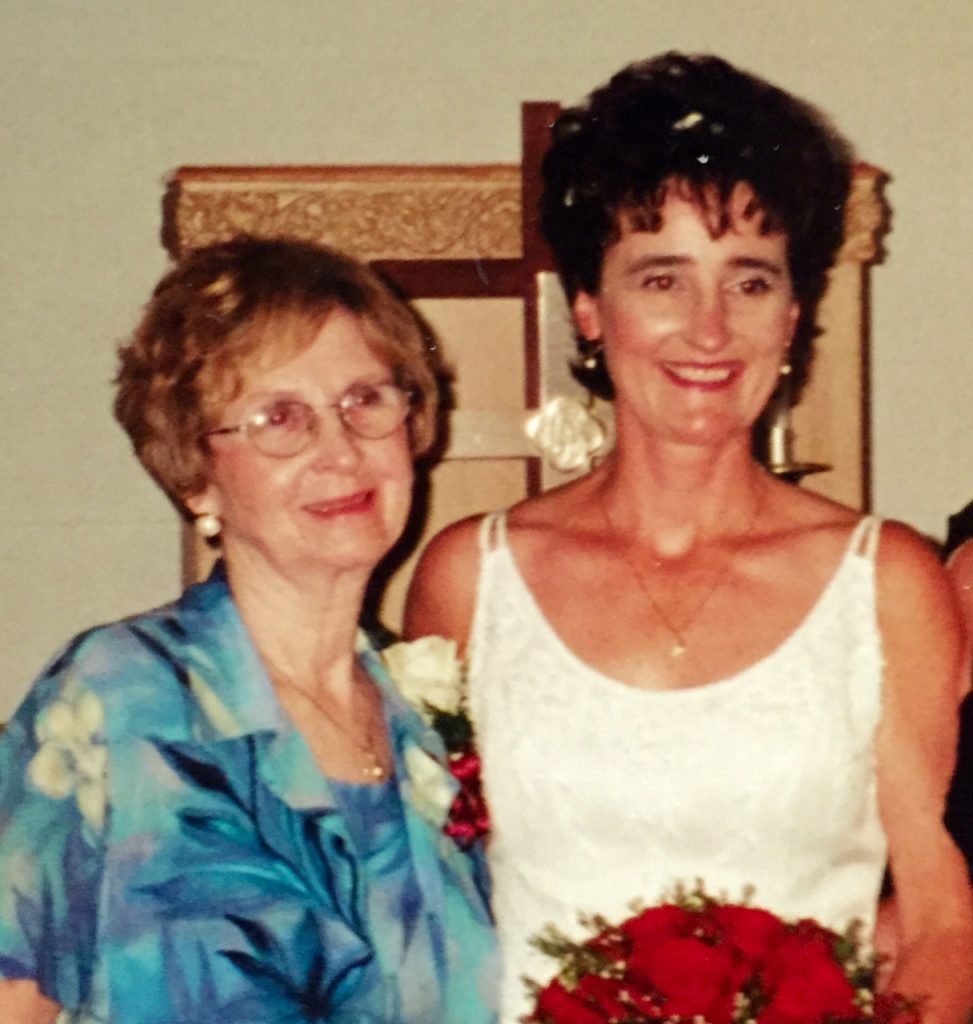My mother was diagnosed with Alzheimer’s in the spring of 2001. My father called me earlier in the year saying she was having trouble completing her sentences – she could not remember the words she wanted to use. I made the 40 minute trip to visit and saw for myself. We knew something was wrong, but we weren’t sure what it was. It got worse. We took her to see a neurologist who had her complete a short memory test. She answered only about half of the questions correctly. That was shocking to both of us. While it wasn’t definitive, the neurologist told us it could be Alzheimer’s or another form of dementia. Later the suspicion was confirmed when an MRI showed her hippocampus (the part of the brain that is involved in forming, organizing and storing memory) to be small – much smaller than it should be, a telltale sign of Alzheimer’s.
That summer my dad and I went to a class on Alzheimer’s at the local hospital, so we could learn more about the disease. That’s also where I learned about WRAP. Dr. Mark Sager gave an overview of the disease at one of the sessions and he also talked about the study. Not long after that, I signed up and began traveling to Madison every two to three years to be tested. The seven years of my mother’s decline and eventual death from Alzheimer’s disease was one of the worst things my family and I have ever been through.
A little more than two years after my mother’s death, I got an idea. Because of my personal experience and the difficulties my family faced in caring for my mother, I wanted to tell the story of how this disease affects families and the terrible toll it takes on everyone. I believed that the best way to tell it would be through the lives of several of my colleagues in the WRAP study, utilizing the medium of documentary film. I also wanted to show accurately where we really are on the path to a cure. Many times I read news articles that purported a new drug was “close” to a cure, and I knew this wasn’t so. I believed that a documentary film would be a powerful way to bring this disease to the forefront, instead of it remaining largely in the shadows. As I did additional research I became more educated on how widespread the disease is and will become; I learned that funding for Alzheimer’s research is severely lacking compared to other major diseases and therefore is a huge issue. That information added to the fuel, and so I began the journey to make this film.
– Therese Barry-Tanner
